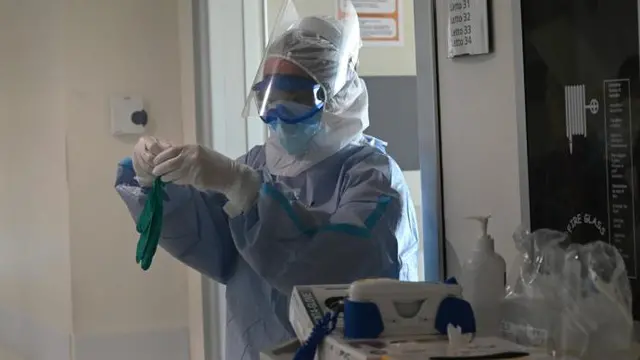Lu Mei-chen had been busy covering everything in her three-story home all night and into the morning, just in time before a pest control squad sent by a local health agency came to spray pesticides.
Lu lives in southern Taiwan's Kaohsiung, a city visited by dengue fever every summer. From the beginning of May until Wednesday, the number of dengue fever cases confirmed in the city totaled 1,108, according to the local disease control center.
Lu's community has reported several cases of the mosquito-borne disease, resulting in urgent chemical control measures within a 50-meter radius. Lu realized how close she lives to the disease.
A letter stuck to her door Monday said: "Epidemic prevention workers will carry out mosquito larvae inspection and spray pesticides in and around your community from 1:50 p.m. to 4 p.m. on Wednesday." She received two such letters last summer, so she already knew what would happen.
At exactly 2 p.m., three young men wearing white uniforms and gas masks with spray guns in their hands showed up at Lu's doorstep. She took her 92-year-old mother-in-law out to rest in a chair across the street. In 10 minutes their rooms would be filled with gas, and they were advised to stay out of the house for the next several hours.
Lu runs a snack stand near a primary school where she makes scallion meat pies. The dengue fever outbreak has cost her "a day of business" because she had to stay at home, cleaning and waiting for workers to show up.
Luckily for Shiu Shu-hua, 47, her day off was paid. Shiu is a nurse practitioner from a local hospital in another district. She asked for a day off to clean her home after a neighbor was confirmed to have dengue fever on Tuesday.
"If cases are reported in your community, you can ask for paid leave of one day for cleaning," Shiu said. "It is required by government, and employers have to abide."
Shiu's job in medicine enables her to pay more attention to the disease and the epidemic situation. In April, she and two colleagues started giving lectures on dengue fever and its prevention to social institutions, schools and communities.
"Kindergarten kids show great interest in [disease prevention] activities such as finding mosquito larvae," she said. "Everyone in Kaohsiung is obliged to tell their children how to prevent dengue fever."
In her hospital, doctors, from pediatricians to orthopedists, are all trained to recognize symptoms of dengue fever and have an obligation to report suspected cases.
"It can spread very quickly if some of us fail to treat it seriously," Shiu said, fretting over a few mosquito bites she got over the weekend when dining with her friends by the seaside. "The incubation period is about a week, so I wear sleeves these days when I am out."
By Wednesday, the number of dengue fever cases in Taiwan had climbed to 10,384, with 9,103 cases reported in the neighboring city of Tainan, and the confirmed dengue death toll hit 25, the island's disease control center said.
Though their rooms had been treated thoroughly, evening rain increased Lu and Shiu's vigilance. Both of them got up early Thursday morning to inspect and clear dirty water around their homes, now with another incentive -- the government has just announced anyone who fails to do so will face huge fines.
 简体中文
简体中文

